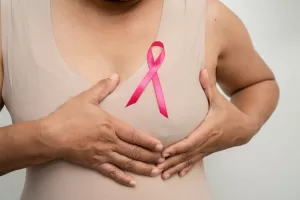How to Cope With a Breast Cancer Diagnosis: Emotional and Physical Support
Receiving a breast cancer diagnosis can be overwhelming, leaving you feeling scared, confused, and uncertain about the future. As you navigate this challenging time, it’s crucial to prioritize both your emotional and physical well-being. Understanding how to cope with your diagnosis and seeking appropriate support can significantly impact your journey towards recovery. This article will guide you through effective strategies for managing your emotions, finding reliable resources, and building a strong support network. By focusing on self-care and utilizing available assistance, you can face your breast cancer diagnosis with resilience and hope, empowering yourself to take an active role in your treatment and healing process.
Getting Support After a Breast Cancer Diagnosis
A breast cancer diagnosis can be overwhelming, but you don’t have to face it alone. Cancer support in Singapore and worldwide offers various resources to help you cope. Seek out breast cancer counseling to process your emotions and develop coping strategies. Many organizations provide free, confidential emotional support through trained volunteers who have experienced breast cancer themselves.
For your physical well-being, explore cancer recovery programs that focus on nutrition, exercise, and managing treatment side effects. Remember, breast cancer Singapore support groups can offer valuable peer connections and practical advice. Prioritize emotional support for cancer patients through counseling, support groups, and loved ones to nurture hope and restore confidence during your journey.
Finding Emotional Support When You Have Breast Cancer
A breast cancer diagnosis can trigger a whirlwind of emotions. Seeking support is crucial for coping with this challenging journey. In Singapore, various cancer support services are available, including breast cancer counseling and emotional support for cancer patients. Connecting with others who understand your experience can be incredibly comforting. Consider joining support groups or seeking one-on-one counseling to navigate your feelings. Remember, breast cancer recovery is both physical and emotional. Don’t hesitate to reach out to breast cancer Singapore organizations or your healthcare team for guidance on available resources.
Joining a Cancer Support Group in Singapore
Connecting with others who understand your journey can be invaluable when coping with breast cancer. Cancer support groups in Singapore offer a safe space to share experiences and find emotional support. The National Cancer Centre Singapore (NCCS) provides free support groups co-led by medical professionals and patient leaders, open to all cancer patients regardless of where they receive treatment. These groups aim to alleviate stress and helplessness during your cancer recovery. For those seeking breast cancer counseling, the Singapore Cancer Society offers specialized groups like Reach to Recovery, focusing on breast cancer Singapore patients and survivors.
Understanding Your Breast Cancer Diagnosis and Prognosis
Understanding your breast cancer diagnosis and prognosis is crucial for effective breast cancer counseling and treatment planning. It’s normal to feel overwhelmed, but knowledge empowers you to make informed decisions. Discuss your specific type of breast cancer, stage, and treatment options with your healthcare team. They can explain potential outcomes and address your concerns. Remember, breast cancer Singapore treatment has advanced significantly, improving prognoses for many patients. Seek emotional support through cancer support groups or professional counseling to help cope with the psychological impact of your diagnosis.
Getting Physical Support and Care During Breast Cancer Treatment
Regular exercise can provide numerous benefits for breast cancer patients, including improved physical and mental well-being, reduced fatigue, and decreased risk of recurrence. For those seeking cancer support in Singapore, it’s crucial to consult with your healthcare team before starting any exercise regimen. Gentle activities like walking, swimming, or yoga can be beneficial, helping manage treatment side effects and boost energy levels. Breast cancer counseling can also provide guidance on incorporating physical activity into your recovery plan, ensuring a holistic approach to breast cancer care in Singapore.
Living Well During and After Breast Cancer Treatment
Living with breast cancer requires both emotional and physical support. Cancer support Singapore services can help patients navigate this challenging journey. Engaging in regular physical activity can reduce fatigue and improve mood during treatment. It’s crucial to prioritize mental health through breast cancer counseling or support groups. Focusing on proper nutrition helps maintain strength and energy levels. Remember, there’s no right or wrong way to feel; emotional support for cancer patients is essential for coping with the ups and downs. Embracing a “new normal” after treatment is part of the cancer recovery process, and resources are available to support this transition in breast cancer Singapore clinics and support centers.
Conclusion
As you navigate the challenging journey of a breast cancer diagnosis, remember that you are not alone. By seeking emotional support, educating yourself, maintaining open communication, and prioritizing self-care, you can build resilience and strength. Embrace the help offered by loved ones and medical professionals, and consider joining support groups to connect with others facing similar challenges. While the road ahead may seem daunting, focusing on your physical and emotional well-being will empower you to face each day with courage and hope. With the right support system and coping strategies in place, you can overcome the obstacles and emerge stronger on the other side of your breast cancer experience.
Disclaimer: The content for this article is for informational purposes only and is not a substitute for professional medical advice, diagnosis, or treatment. Always consult your oncologist with any questions regarding a medical condition. Do not disregard medical advice or delay seeking it based on information from this site.

